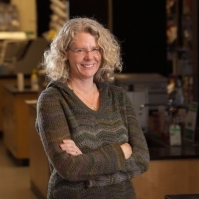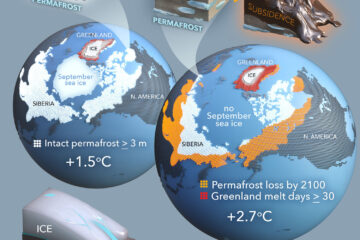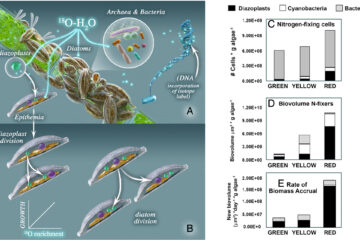Michelle MackRegents' Professor of Ecosystem Ecology

Research Interests
As global temperatures increase, fragile ecosystems across the world are facing drastic changes, such as more extreme forest fires and increasingly severe droughts. Dr. Michelle Mack, a professor at NAU’s Center for Ecosystem Science and Society (ECOSS) and a recognized leader in plant and ecosystem ecology, is researching how global climate change is affecting plant health and development. “I am interested in understanding how nutrients such as nitrogen affect how plants and soils respond to climate warming,” said Mack.
Dr. Mack’s lens is global. Her research includes understanding fire regimens in the boreal forests and the Arctic tundra of North America, analyzing thawing permafrost soils in Siberia, working with huge trees in tropical wet forests of Costa Rica and Panama, and studying savanna ecosystems in South Africa.
Current Projects
Mack and her lab team are currently focusing on two main projects. The first project seeks to understand how fire is affecting ecosystems as global temperatures increase. Funded by both the National Science Foundation and the Department of Defense’s Strategic Environmental Research and Development Program, Mack and her students are studying the consequences of a warmer, dryer climate in high northern latitude ecosystems. This climate combination makes for very good fire conditions. “We are seeing more extreme fire years; places that historically haven’t burned are now burning, such as Arctic tundra,” explained Mack.
Mack’s second major project looks at changing nutrient dynamics in Arctic ecosystems. This project is part of the National Science Foundation’s Long Term Ecological Research Program, the largest and longest-lived ecological network in the United States.
Mack is curious to discover whether or not rising temperatures are going to affect plant growth and the composition of plant communities. “My lab group is interested in understanding the basic mechanisms through which warming is going to affect plant growth and how those effects alter the balance of carbon in ecosystems,” said Mack. “The question is: Who’s going to win in a warmer world? Will plants grow more, or will microbes respire more carbon?”
Mack aims to understand just how plants influence their environment and, in reverse, how the environment affects the growth of plants. “It’s not just a plant responding; a plant can influence its entire environment,” she said.
While Mack credits some of the best parts of her job to working with students and colleagues, she also notes the great joy she finds when immersed in nature. “One of the best parts of my job is working in wild places; it fulfills that [wild] part of me. Even if I am out there quantitatively sampling soils, I am still in the middle of the North Slope of Alaska hundreds of kilometers away from any human structure.”




